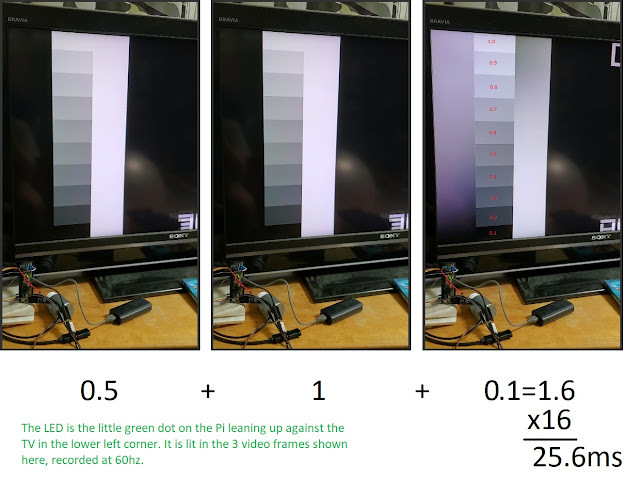What OS is best for a low-end laptop? Evaluating Win2k on a 800mhz ThinkPad
An 8 year old laptop can still be pretty useful for surfing the web, writing emails and papers, and other sorts of basic tasks. In fact, low-end laptops have become quite the rage with the $350 "NetBook", as personified by machines like the Acer Aspire One, or the Dell Inspiron Mini. But for many of us it's possible to get your hands on a old Low-end machine for much less than $350. And, unlike the Netbooks, you'll get a full-sized keyboard and screen.
The question this post focuses on is what OS provides the best sort of performance for this kind of low-end machine.
Coming fresh from my Xubuntu experience I was surprised at how much more work it was to install Win2k. You always hear about how much pain it is to install Linux, but I think that's largely historical. Today, installing Linux is actually easier than installing Windows - especially older copies of Windows which don't come pre-equipped with all the drivers you'll need, current security updates, or all the good opensource/free software that you'll want, like Firefox and Open Office. Not that it's actually 'hard' to install Windows - all the steps are easy; it's just time consuming to download the right service pack, gather drivers together, and install each one in turn. With Linux a fully functional install took all of 20 clicks. I'd estimate Windows took more than 10-20 times as many. And with all the rebooting required, I'd guess it took 3-4 times as long to get a fully functioning OS, before I even started installing applications.
Of course you only have to install the OS once (every few years). So what really matters is performance after it's all set up.
Websurfing was just fine, just as in Linux. Firefox could handle multiple websites at once, with no jumpiness or lag. Flash was also better, with no more than 1 dropped frame a minute. Also, it was possible to multi-task without making Flash drop audio and video, unlike with Linux. That was almost certainly an issue with Flash being poorly implemented under Linux, as my Linux tests showed that the same machine could play back DVDs just fine. Nonetheless, I'm more likely to use Flash on a machine like this than watch a DVD...
For doing real work, I tried coldstarting AbiWord and Open Office. AbiWord started in 5 seconds. Open Office writer started in 33 seconds. For comparison, AbiWord started 2 seconds faster than under Linux, but Open office actually took 9 seconds longer. Note that I did not have the quick-start program installed under Windows, since that just hides Open-Office start time in the bootup time, and wastes RAM too. As far as I know, no such quick-start program was running under Linux, so it's rather impressive that the same version of Open Office loads quicker under Linux. Not that 24 seconds is really 'quick'. Open office is a real pig, actually. Note that once started, both AbiWord and Open Office were perfectly snappy, with no typing lag or any problems like that. With both programs loaded, plus Firefox, I found that performance continued to remain snappy, with switches between applications taking less than 1/2 a second.
So what about the bootup time, which was so disappointing under Linux? Bootup time from power on to a usable desktop was 110 seconds, only 10 seconds faster than Linux . Clearly, this was still too slow, so I experimented with using Hibernation, where the contents of RAM of an already booted machine is written to disk. Assuming a fast enough disk, it's going to be quicker to load that RAM image back from the disk than going all the way through bootup again. Hibernating to disk took 34 seconds. Resuming from hibernation took 44 seconds, still longer than I would like, but a significant improvement over Xubunutu, which took 80 seconds! So, in conclusion, I was right: Windows (2k) is faster to start up than Xubuntu was, though only significantly so when you use hibernation. And Windows is still slower than I would like.
So, in conclusion, which is better for a low end laptop (as personified by my 800mhz Thinkpad)? Linux/Xubuntu was much easier and quicker to set up, and comes with lots of good opensource software "right out of the box" (fresh off the download?). Booting, however, was painfully slow, as was Flash performance. On the other hand, Windows took forever to install and setup, but once configured it was fast(er) to boot (or at least, to resume from hibernation). Though I only tested two applications, it does appear that Linux starts applications slightly faster than Windows does, at least with the monolithic Open Office. In retrospect I wish I had benchmarked a few more apps, but I hadn't expected there to be much difference. Oh well, I'm sure somebody else will do it eventually.
So it's kind of a draw, if you ask me. Other factors, such as what kind of software you want to use probably makes a bigger difference than the differences in performance. I'd go with Windows myself, since I prefer MS Office (esp. Office 2000, which is very fast to load, and lacks all the bloat of Office 2007). But if you prefer Open Office, or other Linux only apps, then clearly Linux wins. It's nice when the choice of what OS to use depends mostly on taste; after all it would be sad if I had to report that Linux fans should use Windows because it's so much faster, or vice-versa.



Comments